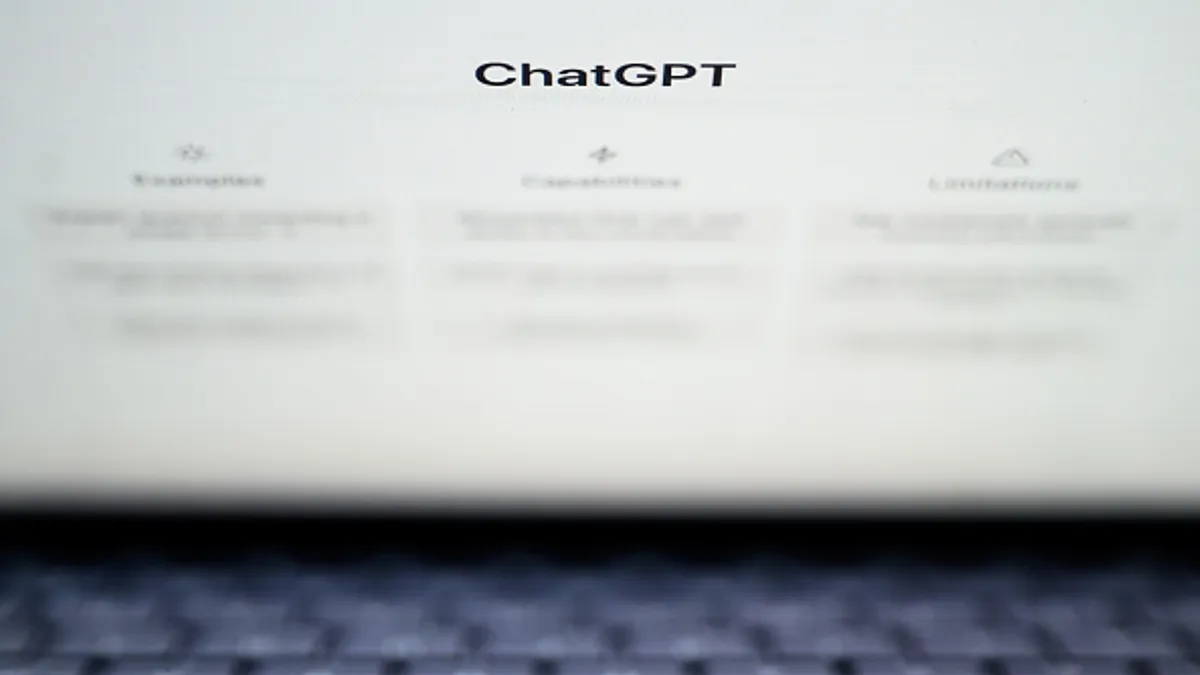Dive Brief:
- OpenAI launched ChatGPT Enterprise Tuesday with a focus on security and privacy, the company announced in a blog post.
- The service encompasses the capabilities of OpenAI’s Code Interpreter and runs on GPT-4, functioning as an assistant with a conversational interface to answer work-related questions. The tool performs up to two times faster than other versions of ChatGPT, OpenAI says, and can process four times longer prompts or files. The tool also includes shareable chat templates for employees to collaborate and build workflows.
- OpenAI will not train models on business data or conversations and models do not learn from enterprise usage. Conversations are encrypted in transit and at rest, too, OpenAI said. Enterprises control all business data in ChatGPT Enterprise, and a new console lets administrators manage team members and offer domain verification, single-sign-on and usage insights.
Dive Insight:
OpenAI kicked off a generative AI craze that crossed industries nine months ago. Since its public launch, more than 80% of Fortune 500 companies have registered ChatGPT accounts, OpenAI said.
Early users of ChatGPT Enterprise include The Estée Lauder Companies, PwC, Canva and Zapier.
ChatGPT’s accessibility created a way to crowd-source early use cases and beneficial prompts, but it also proved challenging for enterprise technology leaders trying to mitigate risks associated with shadow IT.
OpenAI is looking to regain trust through enterprise-grade tools, but organizations have a lot more to choose from than they did last November. The hyperscalers, which are expecting to boost growth with increased generative AI use, want to become all-inclusive shopping destinations for generative AI solutions.
Google Cloud is expanding its generative AI marketplace in its end-to-end ML platform Vertex AI, the company announced Tuesday.
Meta’s Llama 2 model, Anthropic’s Claude 2 and The Technology Innovation Institute’s Falcon LLM will join over 100 curated models available on the platform, including Google’s first-party models. Vertex AI includes a model marketplace, called the model garden, and a generative AI studio encompassing tools related to fine-tuning and deploying models.
Google isn’t alone in its marketplace offering. AWS has its generative AI foundational model marketplace through its Bedrock API service, which expanded in July to include Anthropic’s Claude 2, Stability AI’s Stable Diffusion XL 1.0 and two Cohere models. Microsoft offers enterprises access to models through its Azure Marketplace.














